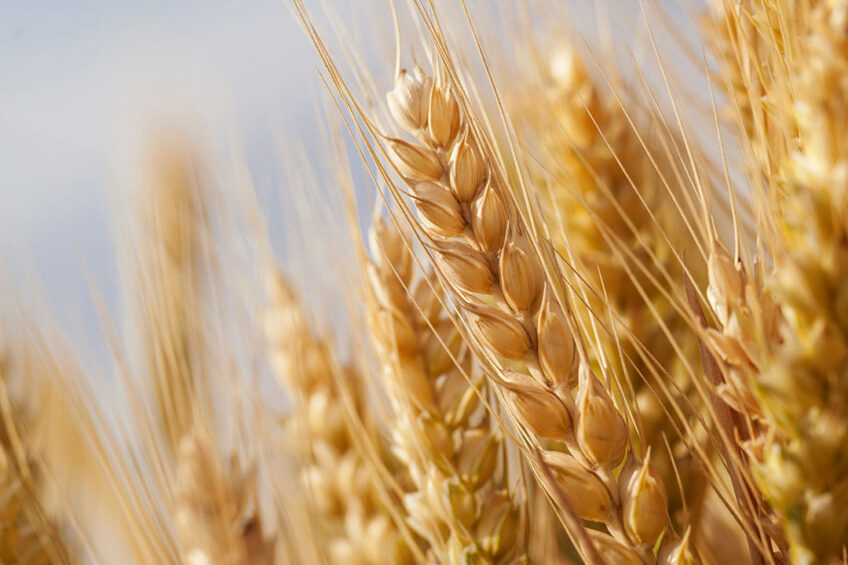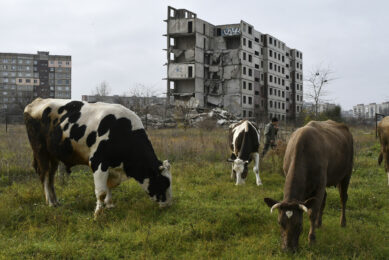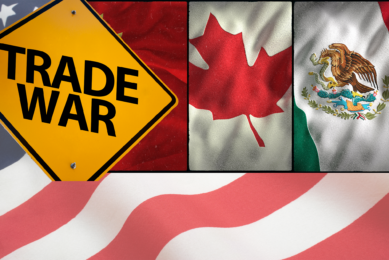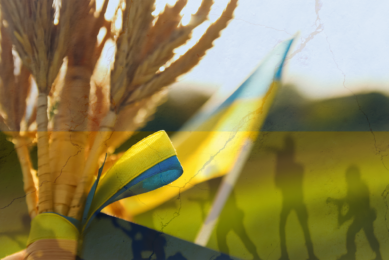EU countries refuse to import grain from Ukraine

Poland, Hungary and Slovakia have put a stop on the importation of grain and other agricultural products from Ukraine for the time being.
The European Union is mortified and calls the Polish and Hungarian solo acts “unacceptable”. Since the Russian invasion of Ukraine, Poland’s support for their neighbour has proved virtually limitless. But that came to an end last weekend. The reason: the collapsed grain market. Fuelled by growing resistance, especially among Polish farmers, Warsaw decided to temporarily ban the import of grain and other agricultural products, such as milk, cheese and meat. Not long after, Budapest also followed. Slovakia also joined today.
‘Solidarity routes’ harming local farmers
Ukraine has been unable to export its grain and other agricultural products through the Black Sea since the outbreak of war. To ensure that Ukraine’s economy does not collapse completely and to prevent food crises elsewhere, the European Union has designated so-called ‘solidarity routes’. These run through Poland, Hungary, Slovakia and other neighbouring countries. But due to a lack of trucks and trains, a large part of the Ukrainian grain remains here. As a result, the local grain price fell sharply.
We [Poland] are and will remain unconditional friends and supporters of Ukraine.
– chairman of PiS, Jaroslaw Kaczynski
Political pressure
While economic tensions have risen in recent weeks, which has already cost the Polish minister of agriculture, there is also a lot at stake politically. The parliamentary elections will take place in October. The current Polish government is led by the Law and Justice (PiS) party. However, the polls show that PiS may lose its parliamentary majority.
That is why PiS is now making every effort to retain the traditional constituency, consisting of many Polish farmers. Last Saturday, the chairman of PiS, Jaroslaw Kaczynski, announced the import ban during a party meeting. “We are and will remain unconditional friends and supporters of Ukraine,” he said. “But it is the job of any good government to protect the interests of its citizens.”
Victor Orban’s Hungarian government did not hesitate for a second and later that same day joined the plea that solidarity routes “seriously harm local farmers”. On Monday morning, Slovakia also announced that it would temporarily ban the import of agricultural products from Ukraine.
The Ukrainian Ministry of Agriculture says it understands the difficult situation of Polish farmers, but underlines that “Ukrainian farmers are currently in the most difficult situation”. They also state that this kind of one-way traffic will not speed up finding a joint solution. On Monday, new talks will take place between Poland and Ukraine on the issue.
In these difficult times, it is crucial to coordinate and harmonise all decisions within the EU.
– European Commission spokesperson Miriam Garcia
Brussels: “It is unacceptable”
While Ukraine’s reaction can be described as mild, Brussels is a lot fiercer. Decisions on trade fall under European competence. The fact that Member States unilaterally decide to impose an import ban is therefore not well received. “It is unacceptable,” said European Commission spokesperson Miriam Garcia. “In these difficult times, it is crucial to coordinate and harmonise all decisions within the EU.”
The Commission has submitted a request for additional information. The Commission does not want to prejudge possible measures against Poland and Hungary and now also Slovakia. The committee does not yet want to discuss the consequences for the new grain deal between Ukraine, Russia and Turkey.
In March, Brussels already offered €56.3 million in emergency aid (of which €29.5 million for Poland) to Poland, Hungary and other border countries. But this amount is insufficient, according to the affected countries. The European Commission is now working on a second aid package. Cancelling the solidarity routes while this threatens to harm world politics is in any case out of the question, Brussels says.











